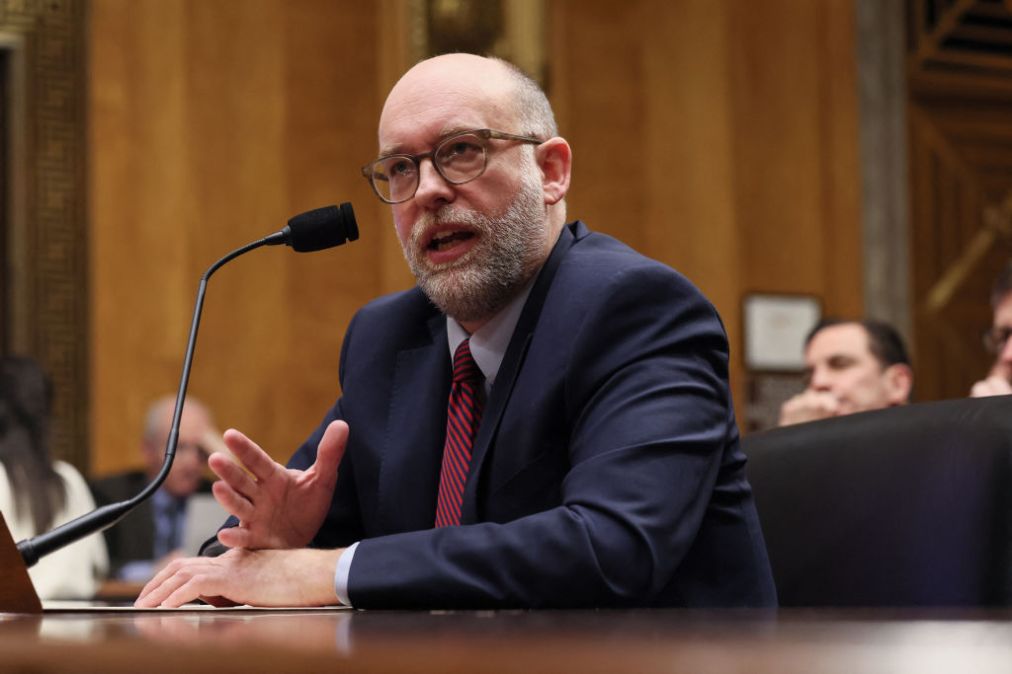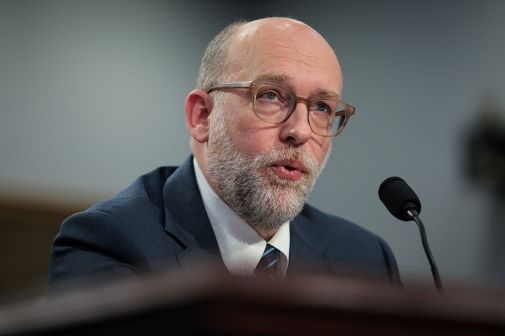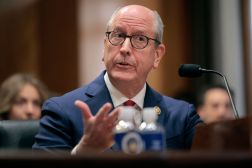OMB nominee Russell Vought dodges Schedule F question

Making a bid for his second stint as Office of Management and Budget director, Russell Vought on Wednesday sidestepped questions during his Senate confirmation hearing about the future of Schedule F, while leaving the door open for a reexamination of telework policies in agency collective bargaining agreements.
Vought, who led OMB for the final six months of Donald Trump’s first term in office, was pressed by Sen. Andy Kim, D-N.J., on whether he’d had talks with the president-elect about restarting Schedule F. Prior to his election in November, Trump pledged to reinstate the 2020 executive order that would ease a president’s ability to fire federal workers.
“I don’t speak to the conversations that I have with the president,” Vought told the Senate Homeland Security and Governmental Affairs Committee. “Those are private deliberations, and I’m not here to announce anything on behalf of” Trump.
Vought noted that Trump instructed all agency heads in his first term to use the Schedule F classification, a move that he called “sound policy” to ensure that the president “has career civil servants that are going to give us all of their knowledge and expertise, and disagreement at times as to what they think about a potential proposal.”
Critics of the classification have said that it hinders the government’s ability to recruit top talent, particularly in the tech, IT, cyber and artificial intelligence fields. Schedule F was quickly overturned by President Joe Biden via a 2021 executive order, but some Republicans would like to see it codified quickly.
Kim also asked Vought to respond to comments he made in a private speech unearthed by ProPublica. A video showed Vought, one of the architects of the Heritage Foundation’s Project 2025, saying: “We want the bureaucrats to be traumatically affected. When they wake up in the morning, we want them to not want to go to work because they are increasingly viewed as the villains.”
Vought told Kim that he was referring in those comments to “bureaucracies” that he believes have been “weaponized.”
“There are portions of weaponized bureaucracies across the federal government,” he added. “That doesn’t mean there’s not amazing career civil servants, many of whom I’ve worked with at OMB. I look forward to [being] confirmed, getting back to work with them, and being able to rely on their expertise, their understanding of the federal programs, and to be able to … allow them to help us have more implementable policies on behalf of the president of the United States. But I do believe that there are bureaucracies that are weaponized against the American people.”
In response to questioning from Sen. Joni Ernst about agency telework policies — which the Iowa Republican is eager to change — Vought said studying those protocols will be “a priority” for the Trump administration and the Elon Musk and Vivek Ramaswamy-led Department of Government Efficiency.
Vought said under his leadership, OMB would “ask the right questions” about how agencies are monitoring their employees, specifically workers who “might be benefitting from the D.C. pay rate” without living in Washington. Collective bargaining agreements regarding telework for federal employees could be an early target for a Vought-run OMB.
“We’re going to take a look at the collective bargaining agreements,” he said. “Obviously we’re aware of the extent to which the Biden administration is locking in or attempting to bind the Trump administration with the CBAs that last an extended period of time. I don’t have anything to announce, other than to agree with [Ernst] that it’s a concerning phenomenon, and one that we are looking at very closely.”






